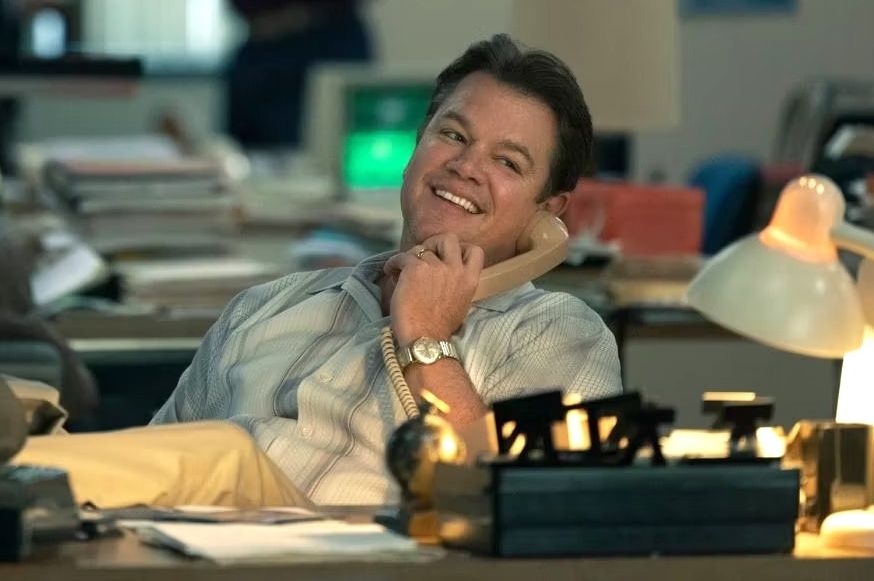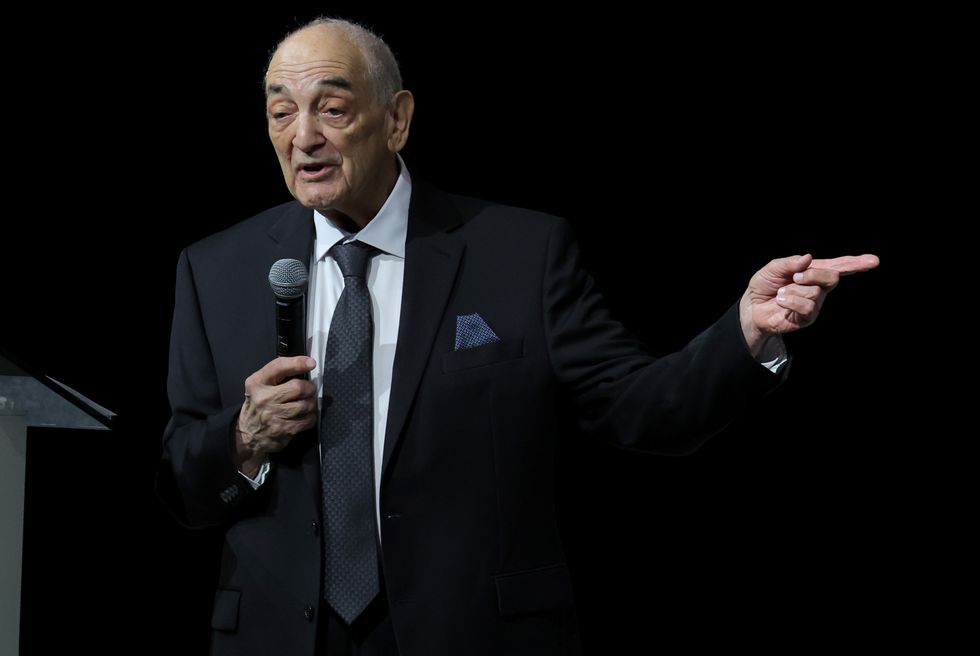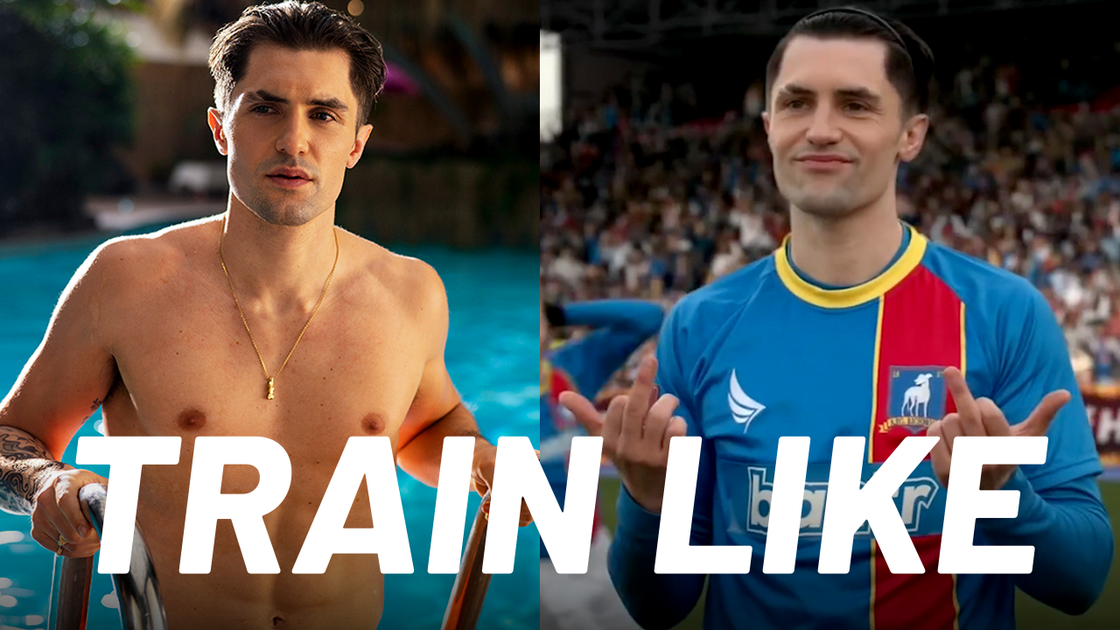IT’S NOT every day that you get Matt Damon to star in a biopic about your life. And yet that’s the exact situation Sonny Vaccaro finds himself in with the release of Air. The Amazon Studios film is the latest collaboration between Damon and Ben Affleck, the latter of whom directed, co-wrote, and co-starred in the project about Vaccaro’s efforts within Nike to pursue Michael Jordan to a shoe deal.
Air goes to great lengths to outline the reality at Nike before his Airness joined up: the brand was known primarily as a track racing shoe, a reputation befitting its name (Nike is the Greek god of victory, often symbolized in motion or movement). MJ’s involvement was incumbent upon not only getting his own signature shoe, but a percentage of the sales made with his likeness included—something unheard of at the time. But Vaccaro proved to be as relentless as MJ himself in his pursuit of the athlete. His passion was rewarded tenfold, as the eventual Jordan 1 sneaker sold over $130 million in its first year and single-handily revolutionized the sneaker market in the process.
If you’re not one of the thousands of sneakerheads lining up every week for the latest shoe drop, Vaccaro isn’t someone you’re likely familiar with. But the executive is responsible for more than just Air Jordan, as his influence and impact on the world of basketball and sports extend far beyond the court—and even into the courts. In the wake of Air, here’s what you need to know about Sonny Vaccaro—both before and after his influential tenure at Nike.
Who is Sonny Vaccaro?
Vaccaro is, without a doubt, a hustler. His first venture—the Dapper Dan Roundball Classic—started in 1964 with some help from his boyhood friend, Pat DiCesare (who, fun fact, was responsible for bringing The Beatles to Pittsburgh during their first US Tour.) The showcase quickly became a way for the best high school basketball players to show off their skills and for college coaches to get a front-row seat to the next generation of talent. At 24 years old, Vaccaro was able to draw massive names to the tournament. Another fun fact: Kareem Abdul-Jabbar intended to play in the inaugural game, but was disallowed by his high school coach. Before shutting down in 2007, notable attendees to the Classic included Magic Johnson, Shaquille O’Neal, Chris Webber, Vince Carter, Patrick Ewing, Kobe Bryant, and the King himself: LeBron James.
On the courts of the Roundball Classic, Vaccaro forged connections with all kinds of coaches and athletes up and down the East Coast. Eventually, he engaged a shoemaker in Trafford, Pennsylvania, named Bobby DiRinaldo. Vaccaro took the designs and headed into Nike’s headquarters to pitch the shoes in the fall of 1978. “I think Mister Knight felt so sorry for me he gave me a job in the promotions department,” he told Sports Illustrated. Knight saw his potential right away; in that same SI piece, the Nike head stated that “We had been beating our brains in trying to get a foot in the door in this game. Then this little portly Italian fellow comes around and says he’s going to burn down the walls for us. When we saw his relationships with coaches in action, that he could produce… And then these massive orders for shoes began pouring in.”
After securing MJ for Nike, Vaccaro left for Adidas in 1992, taking the Roundball Classic with him and flipping sponsorship for the tournament from the Swoosh to the Three Stripes. In doing so, Vaccaro ended up having a falling out with his friend George Raveling, who served as a coach at Southern California, Iowa, and Washington State. Raveling took up a rival position at Nike while Vaccaro was at Adidas.
Vaccaro helped bring Kobe Bryant to Adidas for his first shoe deal. An ESPN Magazine piece from 2002 stated that he never directly engaged Bryant, but instead “moved to New York for six months so he could have Kobe’s parents up from Philly every week for Sunday brunch.”
Where is Sonny Vaccaro now?
Vaccaro worked at both Adidas and Reebok throughout the aughts, before playing a critical role in the O’Bannon v. NCAA antitrust class action lawsuit. Former UCLA basketball star Ed O’Bannon ended up filing a federal lawsuit against the National Collegiate Athletic Association over whether or not Division I stars in football and basketball should receive compensation for the commercial use of their likeness. Growing increasingly frustrated with athletes inability to cash in profits like coaches and university athletic administrators can, Vaccaro partnered with O’Bannon for the initial 2009 antitrust case.
A federal judge ended up granting O’Bannon a (partial) victory in 2014 when they declared that the NCAA violated antitrust laws—but didn’t go a step further and set a precedent for future athletes. Nevertheless, Vaccaro viewed the importance of the moment as a critical one. “I don’t want to react like a giddy teenager or something here, but I don’t know what else in my lifetime I could have done that’s more important to me than what is happening,” he stated after the verdict came back. An appeal by the NCAA was denied.
Naturally, other class-action lawsuits came in the wake of the case, leading up to the National Collegiate Athletic Association v. Alston case, wherein the Supreme Court upheld the precedent established in the O’Bannon case and paved the way for athlete compensation. The NCAA’s Board of Directors approved the change in the summer of 2021.
Vaccaro was also the subject of a 30 for 30 documentary called Sole Man back in 2015, which charted his rise and role through the industry.

William Goodman is a freelancer writer, focused on all things pop culture, tech, gadgets, and style. He’s based in Washington, DC and his work can also be found at Robb Report, Complex, and GQ. He’s yet to meet a jacket or cardigan he didn’t love. In his free time, he’s probably on Twitter (@goodmanw) or at the movies.





Comments are closed.